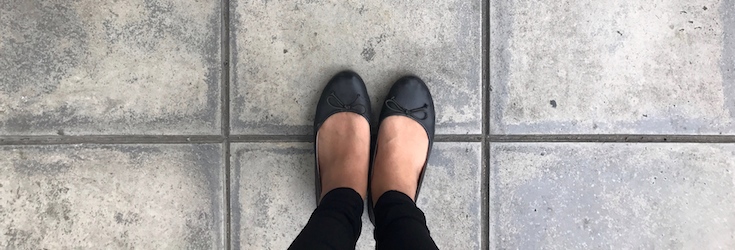Find Your Ground
Article Found on RickHanson.net
What can you do when you’re shaken?
The Practice:
Find your ground.
Why?
I’ve been to New Zealand, and really respect and like it. There’s a Maori term – turangawaewae, “a place to stand” – that I’ve come back to many times.
I’m sure I don’t know the full meaning of the word in its cultural context. But at a basic level, it’s clear that we all need a place to stand. A physical place to be sure – hearth and home, land and sea, a bed to curl up in – but also psychological or spiritual places, such as feeling loved, a calm clear center inside, knowledge of the facts, compassion and ethics, and realistic plans.
This is our ground, the place we rest in and move out from . . . even under the best of circumstances. And when you’re shaken by events at any scale – from changes in your health to changes in your country or world (here’s a recent post you may find relevant: Take Heart) – then it’s especially important to find and hold your ground.
How?
Start with the body, and the feeling of being here. The sensations of breathing . . . heart beating . . . going on living . . . feet on the floor, back against a chair. Whatever is true now can never be taken from you.
Then, silly as it may seem, it can help to reassure yourself about the immediate survival and welfare of yourself and those you care about. Check in with your kids, your friends. Separate thoughts and fears about the future from the reality of the present. Remind yourself that at least in this moment you and they are still basically OK (of course, only if this is genuinely true).
Know that you stand in a web of relationships even if it’s tattered in some ways. Others do care about you. There is camaraderie with people who are also shaken.
Establish as best you can the relevant facts. What is currently true? What caused it – particularly the causes that will continue? What is likely to happen in the future? But watch out for obsessing, blaming, or catastrophizing. When things are shaky, it’s easy to get revved up in thoughts and analyses, let alone imagined arguments with people on Facebook or TV (speaking from personal experience).
Sort out the impacts of events on you, and on others. Be concrete and realistic about consequences for yourself; don’t under- or over-estimate them. Also recognize any sense of injustice, moral outrage, compassion, or concern about how others will or could be harmed. This is often the most upsetting aspect of a situation, and naming it to yourself is clarifying and grounding, and sets you up to do something about it.
Not an easy thing, but in a way the art is opening your heart to the likely suffering of others while closing your head to those who are trying to get into it to rattle, frighten, infuriate, or confuse you.
Start figuring out what you are going to do in three areas:
- Personal practice – Stand in what feeds you. Like petting your cat, making soup, meditating, loving others, or giving thanks. Guard your attention; disengage from news, websites, or interactions that add little value and mainly just upset you.
- Protecting your own interests – Focus on what’s in your control. If these apply: take a fresh look at your health, insurance, finances, loose ends, and plans for an emergency. Make a list and work through it. Personally, I find that action eases anxiety.
- For the sake of others – Without falling into righteousness, I think it’s important to be confident about what you know is true and about your values. Why is it that the people who are most ignorant of the facts and most casual about how they’re harming others are often the ones who look most assured, whether it’s across a dining table or on TV? Claim and stand your ground with moral confidence. Not wasting time in dead-end arguments or “feeding the trolls,” but identifying actions that will make a difference – at whatever scale is accessible to you – and then doing them.
Last, know you are not alone. Whatever you are dealing with, from a personal health problem to a worry about a child to a deep concern about global events, other people right now are also dealing with it or something similar. We stand together on common ground.
Grounded in the belief we are all unique beings, we begin each new client with a meticulous bio-mechanical evaluation, assessing each joint in its relationship to the movement of the body as a whole. Our therapists are skilled at reading the unique story your body tells, and treating everything from the bottom of your foot to the top of your head.
Bodywise Physical Therapy is located in Portland, Oregon. The Bodywise approach is wholistic, individualized, and can benefit people of all fitness levels. While Bodywise has always specialized in general orthopedics, spine rehabilitation, and sports medicine, they have evolved into a truly wholistic practice integrating Hands-on treatments with Mindfulness, Pilates, Trauma Release Exercise, Womens Health and Lymphedema.


